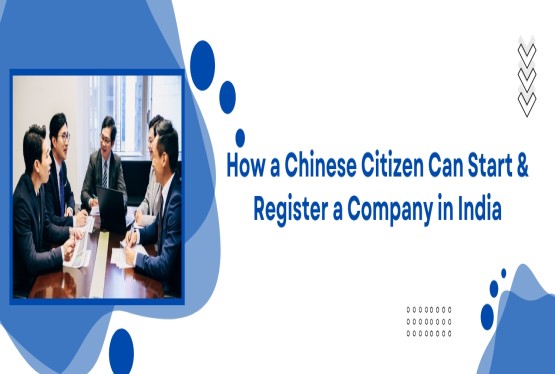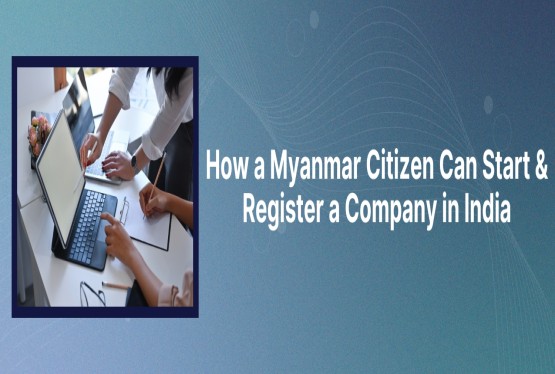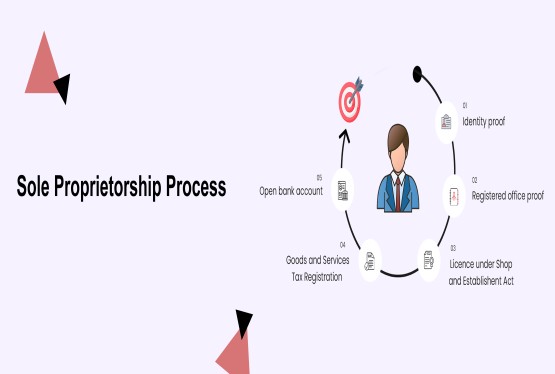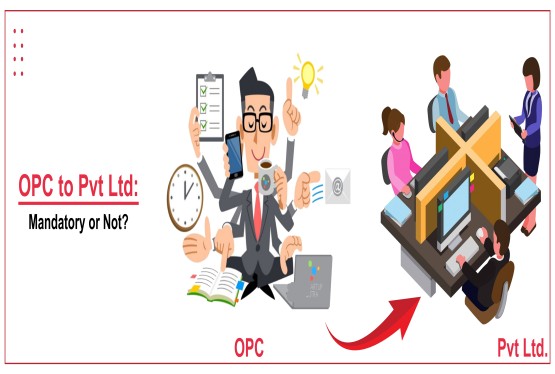The concept of One Person Company (OPC) was introduced under the Companies Act, 2013 to encourage individuals to take up entrepreneurship without the need for multiple partners. As the name indicates, an OPC can be formed by a single person who acts as both the shareholder and director of the company. This structure was not possible before 2013, when at least two members and two directors were required to incorporate a private company, and three directors with seven members for a public company.
By combining the simplicity of a sole proprietorship with the legal benefits of a private limited company, an OPC has quickly become a preferred choice for small business owners and start-ups. It offers limited liability, separate legal identity, and perpetual succession, thereby safeguarding the personal assets of the entrepreneur while granting full control over the business.
In this article, we will provide a clear overview of the process of a One Person Company Registration in India, along with the essential documents and compliance requirements to help entrepreneurs set up their OPC with ease.
What is One Person Company?
A One Person Company (OPC), introduced under the Companies Act, 2013, is a corporate structure that allows a single individual to establish a company with the benefits of limited liability and separate legal identity. As per Section 2(62) of the Act, an OPC can be formed with just one member, who may also act as the sole director, thereby merging ownership and management in the hands of one person. At the time of incorporation, the member is required to nominate another individual who shall take over in case of death or incapacity, though minors are barred from being members or nominees. Unlike traditional companies, OPCs are not bound by minimum paid-up capital requirements and may appoint up to fifteen directors, offering flexibility in governance. Additionally, they enjoy certain compliance relaxations, such as exemption from holding Annual General Meetings and reduced secretarial requirements. This structure is particularly suited to entrepreneurs and small business owners who wish to operate independently while enjoying the legal protections and privileges of a company.
Eligibility Criteria for Registering a One Person Company (OPC) in India
The incorporation of a One Person Company (OPC) is subject to specific eligibility conditions laid down under the Companies Act, 2013 and the Companies (Incorporation) Rules. These requirements ensure that the OPC framework remains suitable for individual entrepreneurs while maintaining legal safeguards. The detailed criteria are as follows:
Natural Person and Citizenship
Only a natural person, i.e., an individual as opposed to a corporate entity, is permitted to incorporate an OPC. Further, the person must be an Indian citizen. With the amendment introduced in 2021, even Non-Resident Indians (NRIs) are eligible to set up a One Person Company in India, thereby expanding the scope for global Indians who wish to establish businesses in the country.
Residential Status
The individual must qualify as a “Resident in India.” As per the amended rules, a resident is defined as a person who has stayed in India for at least 120 days during the immediately preceding financial year. Earlier, the requirement was 182 days, which has now been relaxed to make the OPC structure more inclusive and attractive.
Minimum Authorized Capital
At the time of incorporation, the OPC is required to have a minimum authorized capital of Rs.1,00,000. This amount is mentioned in the capital clause of the Memorandum of Association. Although no minimum paid-up capital is prescribed, stating the authorized capital remains a mandatory compliance.
Nominee Requirement
A distinctive feature of an OPC is the requirement to appoint a nominee at the time of incorporation. The nominee must be a natural person who is an Indian citizen and resident in India. In the event of the sole member’s death or incapacity, the nominee automatically becomes the member of the company, thereby ensuring business continuity. Importantly, minors are barred from being members or nominees in an OPC.
Restriction on Certain Business Activities
An OPC cannot be incorporated for activities that involve non-banking financial investment, including banking, insurance, or investment in securities. This restriction ensures that OPCs are limited to general commercial and industrial activities, preventing misuse of the simplified structure for regulated financial sectors.
Mandatory Conversion on Thresholds
If the OPC’s paid-up share capital exceeds Rs.50 lakhs or its average annual turnover crosses Rs.2 crores in any financial year, it is compulsory for the OPC to convert itself into a private limited company or a public limited company. This provision ensures that once the business grows beyond a certain scale, it complies with the higher regulatory framework applicable to larger companies.
Limitation on Number of OPCs
A single individual can incorporate only one OPC at any given time. Likewise, a person cannot act as a nominee in more than one OPC simultaneously. This restriction is intended to preserve the “one entrepreneur one OPC” principle and prevent individuals from controlling multiple OPCs.
Documents Required for One Person Company (OPC) Registration
To successfully incorporate a One Person Company in India, certain statutory documents must be prepared and filed with the Registrar of Companies (ROC). These documents establish the company’s structure, verify the identity of the promoter, and ensure compliance with legal requirements. The key documents include:
Identity and Address Proof of the Sole Member/Director
-
PAN Card of the proposed member and director (mandatory).
-
Aadhaar Card for identity verification.
-
Passport-size photograph.
-
Address proof (such as Voter ID, Passport, or Driving License).
Registered Office Proof
-
Proof of ownership of the registered office (e.g., property documents) or rental agreement in case of rented premises.
-
A recent utility bill (electricity, water, or telephone bill) not older than two months.
-
No Objection Certificate (NOC) from the property owner permitting the use of the premises as the registered office.
Constitutional Documents of the Company
-
Memorandum of Association (MoA): Defines the company’s objectives and scope of activities.
-
Articles of Association (AoA): Outlines the internal rules and regulations for managing the company.
Nominee Consent Documents
-
The nominee’s consent in Form INC-3, duly signed.
-
Identity proofs of the nominee (PAN Card and Aadhaar Card).
Director’s Declarations and Consents
-
Form INC-9: Declaration by the proposed director confirming compliance with requirements of the Companies Act.
-
Form DIR-2: Consent to act as a director of the company.
Professional Certification
-
A declaration by a practicing professional (Chartered Accountant, Company Secretary, or Cost Accountant) certifying that all legal compliances related to OPC registration have been duly met.
Digital Signatures and Identification Numbers
-
Digital Signature Certificate (DSC) of the sole member/director.
-
Director Identification Number (DIN) for the proposed director.
Process of One Person Company (OPC) Registration
The incorporation of a One Person Company (OPC) in India is governed by the provisions of the Companies Act, 2013 read with the Companies (Incorporation) Rules, 2014. The process is undertaken online through the Ministry of Corporate Affairs (MCA) portal and involves the following steps:
Step 1: Obtain Digital Signature Certificate (DSC)
The first step in the registration of a One Person Company is obtaining the Digital Signature Certificate (DSC) of the proposed director. The DSC is used for digitally signing all electronic documents filed on the Ministry of Corporate Affairs (MCA) portal. For obtaining a DSC, the applicant must submit documents such as PAN card, Aadhaar card, proof of residence, passport-size photograph, email ID, and mobile number.
Step 2: Apply for Director Identification Number (DIN)
Once the DSC is obtained, the next step is to apply for the Director Identification Number (DIN). The DIN is a unique identification number allotted by the MCA to an individual intending to act as a director in a company. Earlier, DIN could be applied separately through Form DIR-3; however, now it can be applied directly through the SPICe+ form at the time of incorporation, for up to three directors.
Step 3: Reservation of Company Name
After securing the DIN, the proposed director needs to apply for reservation of the company’s name. The application is made online through SPICe+ (Part A) on the MCA portal. The name of an OPC should be unique and must end with “(OPC) Private Limited.” The MCA will reject names that are identical or similar to existing companies or registered trademarks. Therefore, due care must be taken to select a name that is distinctive and compliant with the Companies (Incorporation Rules), 2014.
Step 4: Drafting of Incorporation Documents
Once the company name is approved, the applicant is required to prepare the essential incorporation documents. This includes drafting the Memorandum of Association (MoA), which states the objectives of the company, and the Articles of Association (AoA), which defines the rules and regulations governing the company’s internal management. Since an OPC has only one member and one director, it is mandatory to appoint a nominee who shall take over in case of the member’s incapacity or death. The nominee’s consent is obtained in Form INC-3, supported by identity and address proofs. In addition, the proof of the registered office address, such as ownership papers, utility bills, or a rent agreement along with a No-Objection Certificate (NOC) from the property owner, must also be furnished. Further, the proposed director must file a declaration in Form INC-9 and give consent to act as director in Form DIR-2, while a professional such as a CA, CS, or CMA must certify compliance with all applicable laws.
Step 5: Filing of Incorporation Forms with MCA
After the documents are prepared, they must be filed with the MCA through the SPICe+ (Part B) form, along with the linked e-forms SPICe-MoA and SPICe-AoA. The incorporation application is digitally signed by the proposed director using his DSC, and it must also be certified by a practicing professional. One major advantage of this process is that the PAN and TAN of the company are generated automatically along with the Certificate of Incorporation, thus eliminating the need for separate applications.
Step 6: Verification by Registrar of Companies (ROC)
Once the incorporation forms are submitted, the Registrar of Companies (ROC) examines all the attached documents and the details furnished in the application. If the ROC finds the application to be complete and compliant with the provisions of the Companies Act, 2013 and the relevant rules, the incorporation will be approved. In case of any discrepancies or deficiencies, the ROC may send the application back for resubmission or clarification.
Step 7: Issuance of Certificate of Incorporation (COI)
On successful verification of the application, the ROC issues the Certificate of Incorporation (COI). The COI serves as conclusive proof that the company has been duly registered under the Companies Act, 2013, and the OPC becomes a distinct legal entity with perpetual succession. From this stage onward, the company can commence its business operations in India in compliance with the applicable statutory requirements.
Closing Statement
The framework of One Person Company (OPC) has transformed the way individual entrepreneurs can structure their businesses by offering the advantages of a corporate entity without the complexities of managing multiple shareholders. With its limited liability protection, perpetual succession, and enhanced legal recognition, an OPC provides a strong foundation for small businesses and start-ups seeking growth opportunities. The step-wise registration process ensures that the entity is incorporated with due compliance and transparency, while the requirement of a nominee safeguards continuity in unforeseen circumstances. By balancing simplicity with accountability, OPC registration empowers solo entrepreneurs to operate with greater confidence, credibility, and access to resources. Thus, it stands as a progressive business structure that bridges the gap between proprietorship and private limited company, making it an ideal choice for emerging entrepreneurs in India.
Frequently Asked Questions (FAQs)
Q1. What is a One Person Company (OPC)?
Ans. A One Person Company is a type of company structure under the Companies Act, 2013 that allows a single individual to incorporate a company with limited liability and a separate legal identity.
Q2. Who can register a One Person Company in India?
Ans. Only a natural person who is an Indian citizen and resident in India is eligible to incorporate an OPC. Such a person must not be a member or nominee of more than one OPC at a time.
Q3. What are the key documents required for OPC registration?
Ans. The essential documents include PAN card, Aadhaar card, proof of identity, proof of registered office, passport-size photograph, Memorandum of Association (MOA), Articles of Association (AOA), and nominee’s consent in Form INC-3.
Q4. Is there any minimum capital requirement for incorporating an OPC?
Ans. Yes, an OPC must have a minimum authorized capital of Rs.1,00,000 at the time of incorporation. However, there is no mandatory paid-up capital requirement.
Q5. Can an OPC be converted into another type of company later?
Ans. Yes, an OPC can be converted into a Private Limited Company or Public Limited Company upon crossing prescribed thresholds, such as paid-up capital of Rs.50 lakh or an annual turnover exceeding Rs.2 crore. Voluntary conversion is also permitted after two years of incorporation.
Q6. Is it mandatory to appoint a nominee in an OPC?
Ans. Yes, every OPC must appoint a nominee who will take over the management of the company in case the sole member becomes incapacitated or dies.
Q7. How much time does it take to register an OPC?
Ans. On average, the registration process of an OPC takes around 7–10 working days, depending on approval timelines from the Ministry of Corporate Affairs (MCA).
Q8. Can a One Person Company raise funds?
Ans. Yes, though initially limited, an OPC can raise funds through loans, financial institutions, or by converting into a Private Limited Company to invite equity investment.
Q9. What are the compliance requirements for an OPC?
Ans. An OPC is required to file annual returns, financial statements, and maintain statutory records. However, compared to other companies, the compliance burden is relatively lesser.
Q10. What are the advantages of registering an OPC instead of running a proprietorship?
Ans. OPC provides limited liability protection, separate legal existence, perpetual succession, and better credibility, which are not available to proprietorship firms.












_crop10_thumb.jpg)





_crop10_thumb.jpg)




























-Form_crop10_thumb.jpg)

_crop10_thumb.jpg)























_learn_crop10_thumb.jpeg)
































_crop10_thumb.jpg)

_crop10_thumb.jpg)





















_crop10_thumb.jpg)















_for_Foreign_Directors_learn_crop10_thumb.jpeg)




_Act,_2015_learn_crop10_thumb.jpg)



































_learn_crop10_thumb.jpg)






































